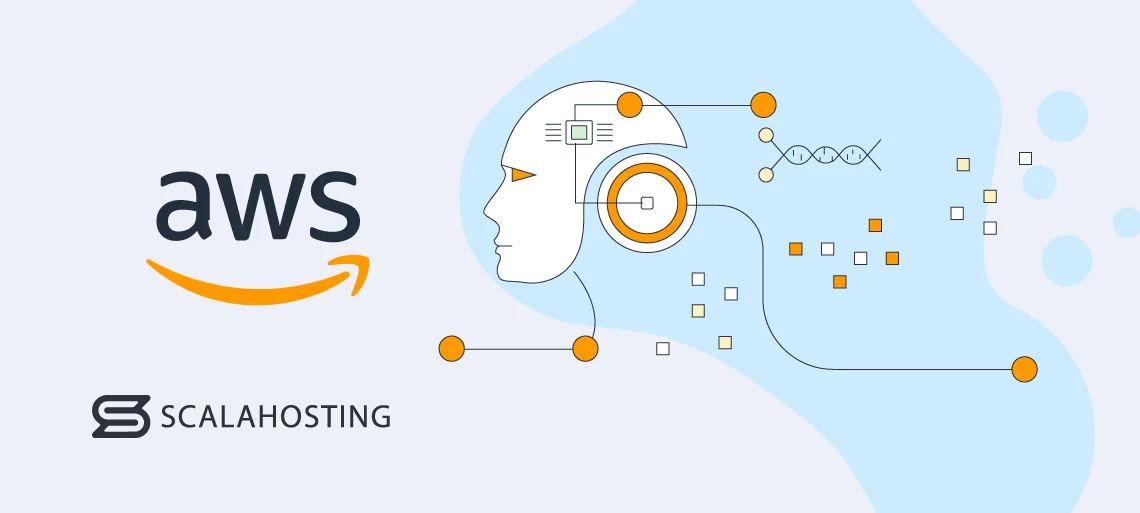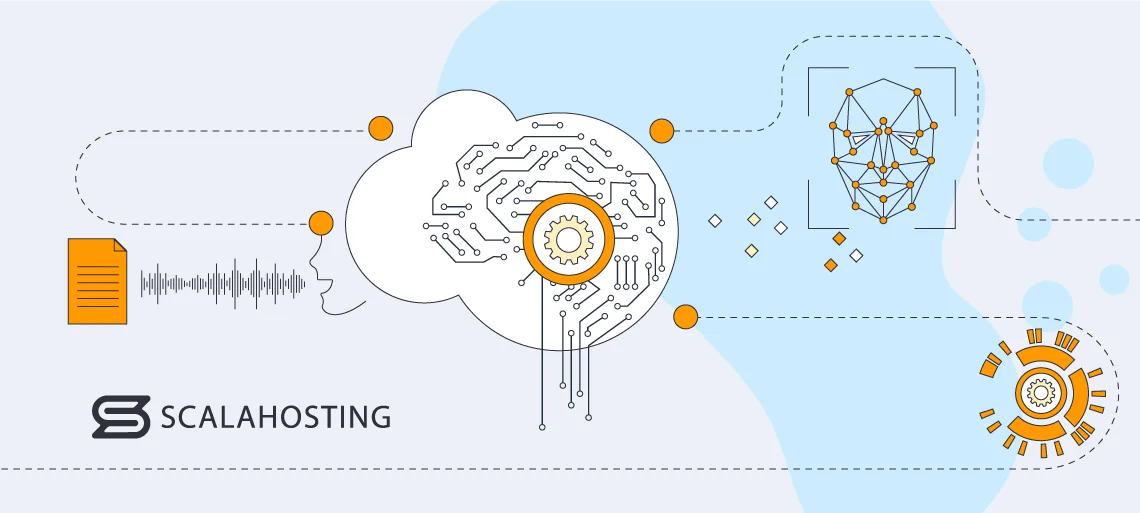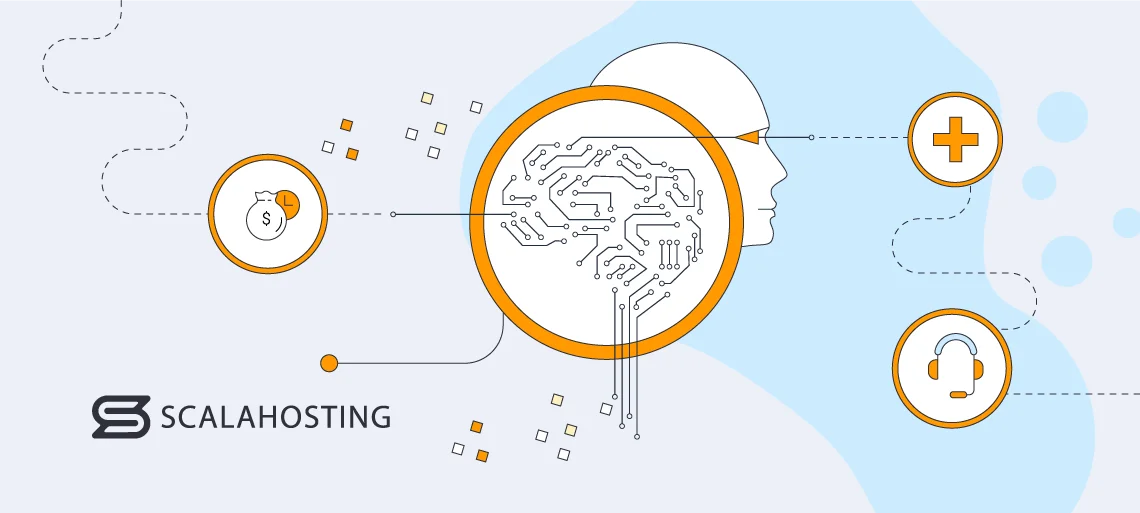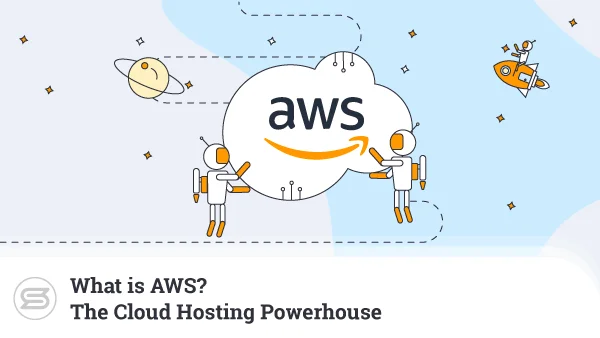Is Amazon AWS a good platform for Deep Learning?
In the fast-paced technology world, more and more organizations are adopting deep learning. The main reason for this is the ability to assist computers to learn independently and perform tasks with minimal human supervision. Thanks to this, there will be remarkable changes in the industrial and scientific sectors.
But how can you engage in deep learning yourself?
Thanks to the advanced Amazon AWS platform, you can now get started with a fully managed experience using Amazon SageMaker. It will help you build, train, and deploy machine learning models at scale, as well as build custom environments and workflows for machine learning.
So, if you’re wondering whether Amazon AWS is a suitable solution for deep learning, stay with us and explore our thorough guide!
Deep Learning Explained

Deep learning is a subgroup of machine learning that involves neural networks with three or more layers. Its goal is to mimic human brain behavior by learning from huge data sets. Therefore, these networks can make accurate and reliable predictions. More precisely, a single-layer neural network provides approximate forecasts, while the other layers improve the accuracy by optimizing the results.
To get a clearer image of how deep learning works, deep neural networks come with interconnected nodes in multiple layers, which, as mentioned, build on the previous one to enhance predictions. This is known as forward propagation, allowing computations to flow through the network. The input layer receives data that needs to be processed, while the output provides the final classification or forecast.
However, there is another aspect of the deep learning process – backpropagation. This operation employs algorithms like gradient descent to calculate prediction errors and adjust the function’s weights and biases by moving backward through the layers.
Compared to machine learning, deep learning replicated brain learning and information processing skills by utilizing artificial neural networks. These networks extract complex concepts from data and enhance their performance and predictions through pattern recognition of text, images, sounds, and other data types.
Furthermore, many AI apps and services implement deep learning to enable automation and easily perform analytical and physical tasks without human force. But that’s not the only usage of deep learning. You can also find it in everyday products like voice-enabled TV remotes, digital assistants, and self-driving cars.
Deep Learning on the Cloud and Its Benefits
Utilizing cloud computing for deep learning offers tremendous benefits. It enables seamless management of large databases and effectively improves algorithms’ training. It also allows deep learning models to scale efficiently and at reduced costs because it runs on GPU processing power. On top of that, the distributed networks on the cloud help enhance the design, development, and training of deep learning apps, which leads to faster processes.
But let’s understand these advantages better.
Speed
Deep learning algorithms are built for fast learning. Therefore, the cloud improves the training process by implementing clusters of GPUs and CPUs to handle all complex matrix operations. Once trained, you can deploy machine learning models so they can efficiently process vast data volumes and generate highly accurate outcomes.
Also, this improves the website speeds of your professional website as the server doesn’t take ages for all crucial procedures. As a result, you’ll gain more customers and provide a smooth online experience.
Scalability
Deep learning neural networks adapt quickly to multiple processors. This helps them distribute workloads across different types and sizes of processors without any issues. Thanks to the cloud’s abundant resources, deploying virtually limitless computing power to handle deep learning models is possible at any scale.
However, nowadays, many web hosting providers allow you to scale up your business in no time. By subscribing to the ScalaHosting AWS hosting plans, you can benefit from one-click scalability that offers up to 8 CPU cores, 32GB RAM, and 640GB SSD storage.


Flexibility
Cloud-based platforms support various deep learning frameworks, such as Apache MXNet, TensorFlow, the Microsoft Cognitive Toolkit, Caffe, Caffe2, Theano, Torch, and Keras. All of these come with pre-packaged libraries of deep learning algorithms, which are suitable for web, mobile, or smart devices. As a result, you will be able to harness the power of these frameworks in the cloud environment and meet your specific needs and goals.
Deep Learning in Action

Deep learning is suitable for different uses of artificial intelligence, such as computer vision, speech recognition, natural language processing, and recommendation engines.
Let’s have a closer look.
Computer Vision
Deep learning neural networks detect subjects with equal or even superior accuracy compared to humans. This is possible due to training with labelled images and extensive databases. This advancement allows experts to implement deep learning machines into quick and accurate facial recognition.
Amazon AWS services include tools you can implement to further enhance computer vision. For example, you can opt for Amazon Rekognition to automate and lower the cost of your image recognition and video analysis. Amazon Rekognition is an image recognition software that offers pre-trained and customizable computer vision capabilities that extract information and insights from your images and videos.
This tool can also detect inappropriate content, verify online identity, streamline media analysis, and send connected home smart alerts. As a result, you’ll improve your safety and your organization’s overall performance and reputation.
But you can also opt for ScalaHosting and host your business site on a trustworthy platform. Thanks to our abundance of features, you can enjoy everything, from powerful caching & performance, to 24/7 real-time cybersecurity, anti-spam protection, and blacklist monitoring.
Speech Recognition
Speech recognition can be pretty challenging for computers because of our speech diversity and accents. However, deep learning algorithms excel in converting spoken language into text, making it easier for them to understand our verbal speech more accurately. This ability is incorporated in virtual assistants like Amazon Alexa and Amazon Transcribe.
Amazon Transcribe effectively converts speech to text and helps organizations get insights from customer conversations, search and analyze media content, create subtitles and meeting notes, and improve clinical documentation.
Natural Language Processing (NLP)
Deep learning helps computers understand natural conversations, where tone and context play a huge role in getting the unspoken meaning. Automated systems, such as customer service bots, can interpret and respond to users meaningfully thanks to algorithms that detect emotions.
Amazon Lex is one such virtual assistant that incorporates AI and quickly understands the context and intent of the speaker. It offers advanced natural language models to design, build, test, and deploy conversational application interfaces. As a result, computers can construct virtual agents and voice assistants, automate informational responses, improve productivity with application bots, and get the most from the information trapped in the transcripts.
Recommendation Engines
The initial success of deep learning was the development of systems that monitor user behavior in order to generate personalized recommendations. By analyzing the combined activity of multiple users, these systems can discover entirely new items that align with your users’ interests.
Keep in mind not to overwhelm your users with personalized recommendation ads, as they may unsubscribe from your messages or even switch to another brand altogether. Also, keep your professional website neat and clean without annoying pop-ups that will distract your customers from finding what they really want.
To ensure you won’t make a mistake with recommendation engines, you can opt for Amazon MXNet. This is a fast and scalable training and inference framework with an easy-to-use, concise API for machine learning.
Most Common Deep Learning Applications

Deep learning is becoming increasingly popular, and its applications have become an essential part of our everyday lives. In this chapter, we will show you some of the most common cases where deep learning machines come in handy.
Law Enforcement
Deep learning algorithms can analyze transactional data and indicate possible criminal or fraudulent activity. However, speech recognition and computer vision applications enhance the analysis by extracting evidence and patterns from audio and video recordings, images, and documents.
This helps law enforcement to accurately and quickly analyze all data sets and improve the effectiveness of their operations.
Customer service
Chatbots have become the main form of AI, which found usage across applications, services, and customer service platforms. Initially, traditional chatbots relied on natural language and visual recognition. However, the current chatbots employ deep learning capabilities that can accommodate different requests. More precisely, they analyze user inputs and directly respond to questions.
If your organization implements this technique, you can provide a more personalized interaction in a straightforward and accurate way.
Healthcare
The healthcare industry has experienced significant advantages since it employed deep learning. Hospitals and other medical institutions can now enable faster and more reliable analysis of medical images or records.
Financial services
Financial institutions are now regularly using predictive analytics. This helps them boost algorithmic trading of stocks, identify business risks for loan approvals, detect fraud, and help manage credit and investment portfolios for clients.
As a result, deep learning contributes to seamless and issue-free operations that improve customer experience.
Final Thoughts
Deep learning is part of a broader family of machine learning methods based on artificial neural networks with representation learning. This revolutionary technological advancement significantly changes people’s lives, and different types of organizations can also benefit from its perks.
Utilizing deep learning on an AWS web hosting plan, you can boost your organization’s overall performance and enhance the customer experience.
FAQ
Q: Is Amazon AWS a good platform for deep learning?
A: Yes, Amazon AWS is a good platform for deep learning. It provides different benefits, such as speed, flexibility, and scalability, and allows you to implement deep learning in computer vision, speech recognition, personalized recommendations, and natural language processing. As a result, your business will work smoothly, ensuring a top-notch customer experience.
Q: In which industries is the deep learning method present?
A: Deep learning is present in almost all industries. However, there are a few sectors where this method plays the most significant role, such as IT, customer service, healthcare, law enforcement, and financial services.
Q: What are the best deep learning frameworks?
A: If you are a newbie and lack technical expertise, you can go for Amazon AWS deep learning. This is a robust platform that will take care of all crucial installations and training processes. However, you can also utilize Apache MXNet, TensorFlow, the Microsoft Cognitive Toolkit, Caffe, Caffe2, Theano, Torch, and Keras. All of these come with easy-to-navigate interfaces and are fairly beginner-friendly.



